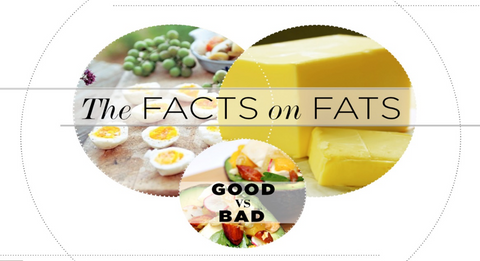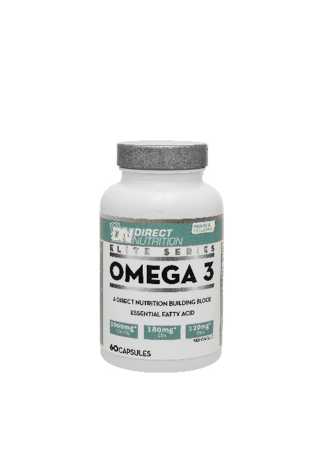Good vs. Bad Fat

Good vs. Bad Fat
Fat had become the modern criminal of the food world, always in the media accused of being responsible for a different disease every time. Is fat really bad? Are all fats the same? The answer is no to both. Read on to find out why.
Fat is an important macronutrient in the body providing energy, protection to cell membranes and is involved with hormone-like activities. Fat is made up of small molecules called fatty acids which are categorised into saturated, monounsaturated and polyunsaturated fats. It is the saturated fat that is largely responsible for negative press, as it has been linked to causing conditions such as heart disease, type 2 diabetes and cancer. Saturated fat can be identified by its state at room temperature; saturated fats are typically solid at room temperature. Health professionals advise replacing saturated fats with unsaturated fats instead.
A type of fat that is now known to be harmful to health and has now been largely removed from the UK diet is Hydrogenated fats. Trans fats are formed when oil underdoes a process called hydrogenation to change the oil to a solid state. This ‘hard fat’ was then used in baking and helped to preserve the shelf life of the food it was contain in. Hydrogenated fats are no longer found in bakery as they were strongly associated with an increased risk of developing heart disease.
The fat which has constantly been in the limelight is cholesterol. Studies have observed a high intake of saturated fats is directly correlated with an in increase in blood cholesterol. There are two main types of cholesterol, HDL (good fat) and LDL (bad fat) cholesterol. The LDL cholesterol is considered as harmful as it accumulates in the blood vessels causing narrowing and blockages which can lead to heart attacks and stroke. Foods containing fat are composed of a mixture of fats; however some foods are composed of a higher proportion of saturated fats for example red meats.
Unsaturated fats are typically liquid at room temperature. Mono and Polyunsaturated fats help in the maintenance of healthy blood cholesterol. These ‘good’ fats are found mostly in plant foods such as nuts, seeds, vegetable oils, olive oil, rapeseed oil and avocadoes. Polyunsaturated fats are essential fats responsible for proving Omega 3 fatty acids (found in fish oil) which has been associated with positive health benefits such as, improving cognitive function, maintaining heart health, psychological health and eye health.
Omega 3 fatty acids can also be found in sunflower oil, flax, linseed oil and walnuts. However, there is a catch. The human body can make most types of fats itself however the human body is unable to make Omega 3 fats acids. For this reason they are called essential fatty acids, the body has to obtain Omega 3 fatty acids from the diet. Although plant foods such as flaxseed oil is considered a source of Omega 3, at present it is unknown how much omega 3 is obtained from such food sources.
This is because the body has to convert the fatty acids provided by the plant oils into omega 3 fatty acids and at present there is no real way of measuring how much is converted then absorbed in the body. Currently the main sources of Omega 3 fatty acids witch conclusively provide a measurable amount of Omega 3 include fish oil and Algae. The fish obtain the Omega 3 from Algae therefore it is readily available for use once it enters the human body.
All fat is a rich energy source with 1 gram providing 37 kJ (9 kcal). The UK daily dietary saturated fat intake for adults in currently 30g for males and 20g for females, with total fat intake of 95g for males and 70g for females. In summary, as fat is the most energy rich macronutrient, it is still an important nutrient vital for health. It is best to ensure consumption of the right types of fat and that total fat intake does not exceed daily recommended amounts. Lastly, where fat is needed, try and replace ‘bad fats’ with ‘good fats’ such as fish oil and vegetable oils.






